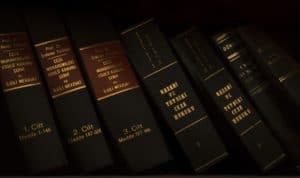AUTHORED BY: MR. AVINASH PANDEY, B.B.A.LL.B, 2ND YEAR STUDENT AT IFIM LAW COLLEGE & RESEARCH WRITER AT LAW AUDIENCE: EDITED BY: MS. SONAL GUPTA, B.A.LL.B, 2ND YEAR STUDENT AT SYMBIOSIS LAW SCHOOL, HYDERABAD & ASSISTANT EDITOR AT LAW AUDIENCE.
CASE NAME: JOSEPH SHINE V. UNION OF INDIA (ADULTERY JUDGEMENT) WRIT PETITION (CRIMINAL) NO. 194 OF 2017.
COURT NAME: SUPREME COURT OF INDIA.
PETITIONER NAME: JOSEPH SHINE.
RESPONDENT NAME: UNION OF INDIA.
DATE OF JUDGEMENT: SEPTEMBER 27, 2018.
INTRODUCTION:
The existing vogue of dominance of one sex over the other sex must be patronized, as the dignity of individual sex is important. The culture in a society deserves kindness and honor to appreciate the individuality of a woman. Policies’ carving out the inequality, favoritism or unfairness and outrage of a woman attracts the vengeance of the Constitution. There have been a various disputes between interest groups and lawmaking bodies which would be dealt in the case analysis.
FACTS:
Joseph Shine, the hotelier challenged the constitutionality of section 497 of Indian Penal Code[1] the core reason behind this petition was to shield Indian men from being punished for extra-marital relationships by vengeful women or their husbands. Petitioner’s close friend, in Kerala committed suicide after a woman co-worker made malicious rape charge on him. Further Section 497 is an egregious occurrence of sexuality unfairness, authoritative imperialism and male patriotism. The traditional framework, in which Section 497 was drafted, is no longer applicable in modern society.
ISSUES ADVANCED:
The validity of the Section was questioned on three grounds-
- Sec 497 infringes article 21[2], “Right to Privacy”.
- Sec 497 violates article 14 and article 15 of the Indian Constitution.
- Section 198(2) of the Cr.P.C. which contains the procedure for prosecution under Chapter XX of the I.P.C. shall be unconstitutional only to the extent that is applicable to the offence of Adultery under Section 497.
JUDGEMENT:
Under the current provision, the husband is an aggrieved person and the wife is neglected as a scapegoat. Presently, the provision is contemplative of a tripartite complexity. A circumstance may be formulated where uniformity of situation and the justice to file the case may be bestowed with the wife. But, in case of adultery, the law demands the multitudes to remain faithful and maintain fidelity, and makes the adulterer the criminal. This is by law a rule which gets into the essence of isolation; it is a prejudiced power and a socio-moral issue.
Infidelity, in specific circumstances, may not be a problem of an unfortunate matrimony. It is tough to conceptualize of such circumstances in absolute terms. The issue that demands to determine, whether the said act should be made a criminal offence, particularly when on certain moments, it can be the cause and in certain situations, it can be the result.
Assuming of adultery from the point of view of crime would be a retrogressive step. The Court has progressed on the track of transformative constitutionalism and, therefore, it is completely inapplicable to sit in a time machine to a different era where the machine proceed on the path of regression. Hence, to treat adultery as a crime would be unfair in law. The position which forms the basis of the legislation on adultery is the resources of a patriarchal setup; Section 497 is based on a perception of righteousness which disappoints to accord with the conditions on which the Constitution is established. The independence which the Constitution guarantees inhere is men and women equal. In passing Section 497, the legislature made a notable struggle to preserve the institution of marriage. In June 1971, the 42nd Report of the Law Commission of India examined several provisions of the I.P.C. and +advised that the promiscuous woman must be made proportionately responsible for prosecution, and the penalty be reduced from 5 years to 2 years.
REVIEW/COMMENTS:
In the case of Yusuf Abdul Aziz v. State of Bombay[3], the division bench of the Bombay High Court held that section 497 IPC, 1860 does not violate article 14 & 15 of the Constitution of India
In the case of Sowmithri Vishnu v. Union of India and Anr.[4], the Hon’ble court held that the scope of the offence of adultery should also make woman punishable.
On the global scale, many countries abolished adultery & some retained adultery as a core purpose for divorce. It was moreover presented that Section 497 violates Article 14, of the equitable procedure before the law and distinguishes between marital standing. It impedes a woman from initiating criminal proceedings. Further, the approval of the woman is inappropriate to the offence. Hence, Section 497 of the IPC is violative of fundamental right to privacy under Article 21, considering the decision of a partner with whom she could be devoted, falls considerately within the domain of liberty over a person’s gender. Further, it’s apparent that each of the individual has an unfettered power “whether married or not, either man or woman” to involve in sexual intercourse outside his or her marital relationship.
CONCLUSION:
In the present case, Joseph Shine v Union of India, the Supreme Court led down certain guidelines regarding the provisions of Adultery. The court held that Section 497 of Indian Penal Code, 1860 is violative of Article 14,19 & 21 of the Constitution of India However, the author concludes that, it’s very important to understand the spirit of the relationship. The obligation of the legislation which comes into the role is to implement proper interpretation of every enactment.
[1] Sect. 497, “Adultery: Whoever has sexual intercourse with a person who is and whom he knows or has reason to believe to be the wife of another man, without the consent or connivance of that man, such sexual intercourse not amounting to the offence of rape, is guilty of the offence of adultery, and shall be punished with imprisonment of either description for a term which may extend to five years, or with fine, or with both. In such case the wife shall not be punishable as an abettor.”
[2] Article 21, “Protection of life and personal liberty: No person shall be deprived of his life or personal liberty except according to procedure established by law.”
[3] Yusuf Abdul Aziz v. The State of Bombay, 1954 A.I.R. 321 (India).
[4] Sowmithri Vishnu v. Union of India and Anr, 1985 Supp S.C.C. 137 (India).



